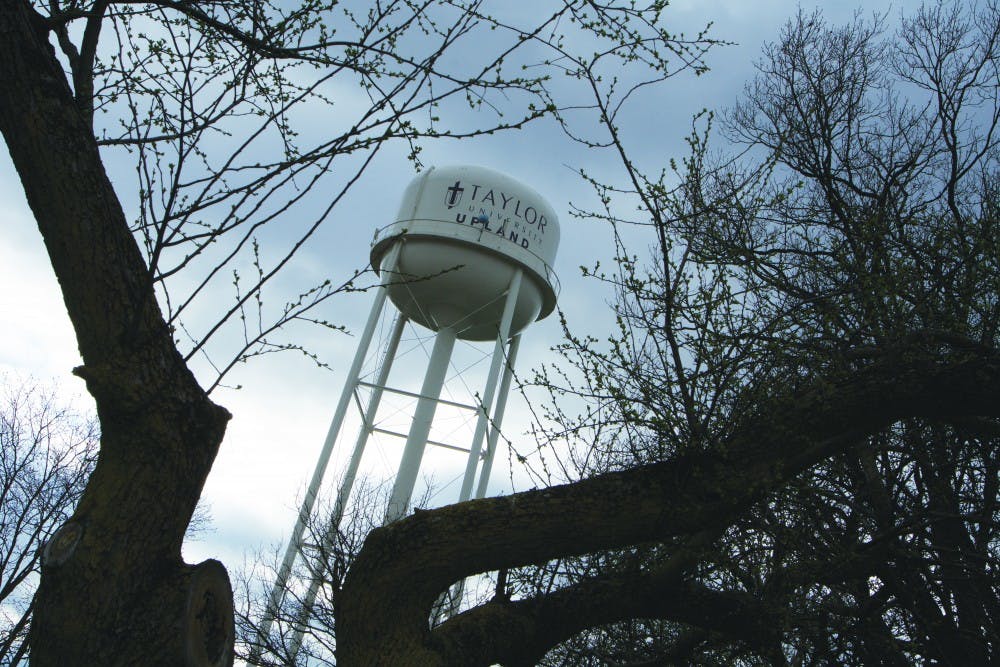By Kassidy Hall | Staff Writer
For Michael Guebert, earth and environmental science department chair and professor of earth and environmental science, it was Boy Scouts that started his passion for the outdoors at a young age. However, it was his wife that turned him toward the idea of geology in college.
Phil Grabowski, assistant professor of sustainable development, recalls having an interest for the rainforest as a teenager, which eventually evolved into an academic interest for ecology.
Today, Guebert and Grabowski use various types of environmental science to engage the gospel mission locally and internationally.

"The heart of my interests is connecting human needs, geological understanding and resources to meet those needs in a way that serves the people, cares for creation and honors God in the process," Guebert said.
When Guebert arrived at Taylor in 1999, he and his students assisted the town of Upland with developing a wellhead protection plan, a process required by the state for any city that provides water to the public. Since 1999, he has done two periodic reports as a follow-up for the plan.
Water is a main area of interest for Guebert. For 15 years, he has assisted the town of Upland in writing annual reports of the town's water quality. Guebert additionally worked with students from 2007-2012 in a study of the water quality in the Mississinewa River in Grant County.
Guebert's developments have been international as well as regional. Through Taylor, Guebert has taken teams of students to different communities in Guatemala seven different times since 2003. Some of the projects include building wells and water filters, putting in suitable sanitation latrines and building stoves inside homes.
"One of the particular benefits of coming to Taylor was working specifically with J-term and Lighthouse and developing a course where I've taken students on a number of trips," Guebert said. "We look at water and sanitation and hygiene in developing countries as a way of ministering to people's needs and protecting their environment and loving God."
Grabowski and his wife lived in Malawi for six years as missionaries. After his time in Africa, he attended Michigan State University (MSU) for his postdoctoral and directed research to discover how agricultural economics can be meaningful for people all over the world.
This summer, Grabowski will travel to Ghana and Malawi with past colleagues from MSU. His other summer plans include helping another colleague from MSU write a paper following the analysis of soil samples.
"(In Malawi), we will be facilitating a workshop among government leaders and non-profit leaders to try and help them think about how their agriculture projects affect women and youth," Grabowski said. "If you don't think about it, usually it's the better educated men who benefit the most, just because that's the inequality that's there."
As this is only his second year at Taylor, Grabowski plans to soon research local food systems around the Upland area. He intends to study the supply and demand relationship of food in the immediate region, whether that be in relation to surrounding restaurants or even the Hodson Dining Commons. He will also be a part of a team entertaining the pros and cons of a cover crop, a crop put into the soil during the winter that optimally builds up the soil and holds onto nutrients during a field's off-season.
Additionally, Grabowski is also the faculty advisor for the club Stewards of Creation, which promotes environmental projects around campus and raises awareness for the caretaking of the planet.
"The call for stewardship comes through in many places in the Bible, but it's especially clear in the Garden of Eden," Grabowski said. "God is the sustainer of all creation, but He has given us a special responsibility as caretakers of the earth. Part of the Gospel is about not just saving our souls for heaven, but also about changing our whole lives on earth."
Grabowski encourages others to take individual action to try and improve sustainability, even in responses as simple as recycling, taking shorter showers and composting food waste.
Guebert recommends supporting both non-Christian and Christian organizations that do environmental work, such as the Sierra Club, World Wildlife Fund and the Evangelical Environmental Network. In addition, he views stewardship as a call to obedience that benefits both us and nature. He acknowledges that through education and influence, the effect of environmentalism can be spread exponentially.
"We will not solve the issues of environment crisis we're in today by simple measures," Guebert said. "We have to make some radical changes in our lifestyles and our perceptions of our position and responsibility as believers, and then to take action and share that with others."





